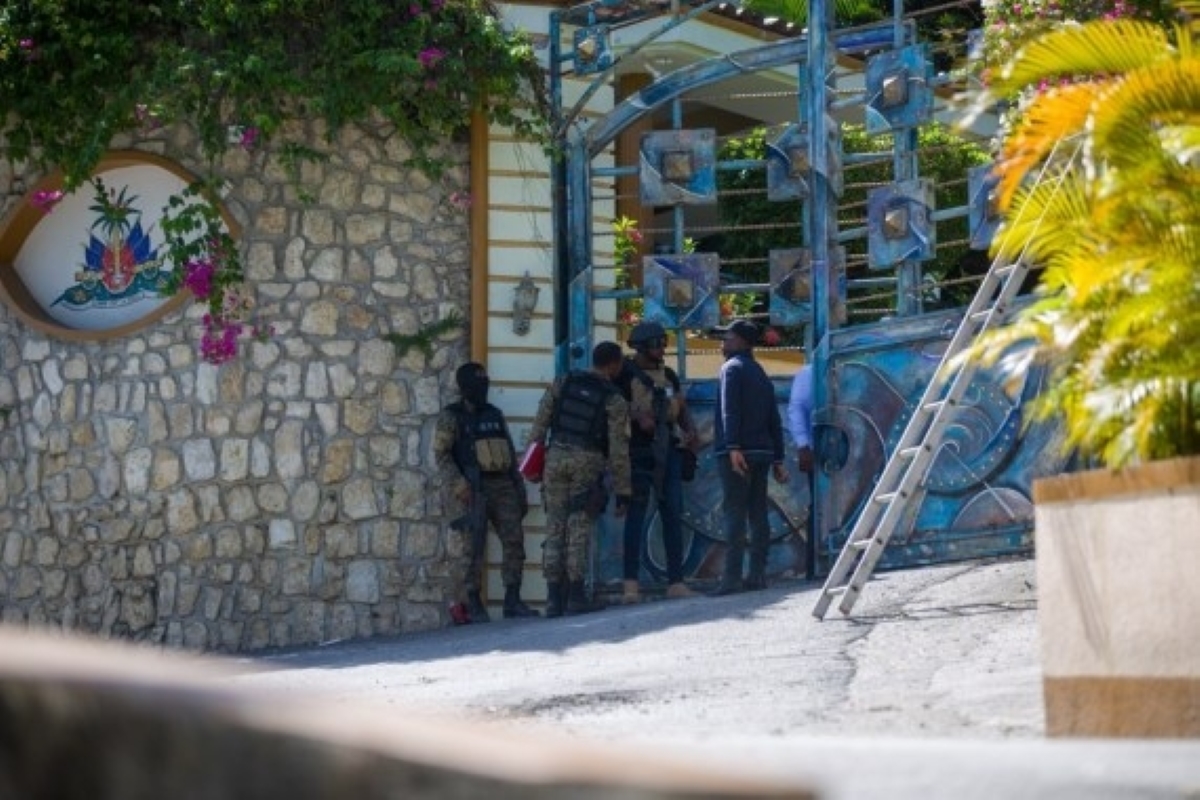As Haiti plunged into turmoil, the interim government has requested for US troops deployment to protect its key infrastructure as it grapples to stabilise the country and hold elections after slaying of President Jovenel Moise.
Claude Joseph had on Friday said that they “definitely” need help and expect assistance for their national police in resolving the situation.
Advertisement
The stunning request for U.S. military support recalled the tumult following Haiti’s last presidential assassination, in 1915, when an angry mob dragged President Vilbrun Guillaume Sam out of the French Embassy and beat him to death.
In response, President Woodrow Wilson sent the Marines into Haiti, justifying the American military occupation – which lasted nearly two decades – as a way to avert anarchy.
But the Biden administration has so far given no indication it will provide military assistance. For now, it only plans to send FBI officials to assist with the ongoing investigation into the assassination.
On Friday, a group of lawmakers declared loyalty and recognized Joseph Lambert, the head of Haiti’s dismantled senate, as provisional president in a direct challenge to the interim government’s authority.
They also recognized as prime minister Ariel Henry, whom Moïse had selected to replace Joseph a day before he was killed but who had not yet taken office or formed a government.
Joseph expressed dismay that others would try to take advantage of Moïse’s murder for political gain.
Among those arrested are two Haitian Americans, including one who worked alongside Sean Penn following the nation’s devastating 2010 earthquake. Police have also detained or killed what they described as more than a dozen “mercenaries” who were former members of Colombia’s military.
Some of the suspects were seized in a raid on Taiwan’s Embassy where they are believed to have sought refuge. National Police Chief Léon Charles said another eight suspects were still at large and being sought.
Colombian officials said the men were recruited by four companies and traveled to the Caribbean nation in two groups via the Dominican Republic. US-trained Colombian soldiers are heavily sought after by private security firms and mercenary armies in global conflict zones because of their experience in a decades-long war against leftist rebels and powerful drug cartels.
It’s not known who masterminded the attack.
The wife of Francisco Uribe, who was among those arrested, told Colombia’s W Radio that CTU offered to pay the men about $2,700 a month – a paltry sum for a dangerous international mission but far more than what most of the men, non-commissioned officers and professional soldiers, earned from their retirement pensions.
CTU Security was registered in 2008 and lists as its president Antonio Intriago, who is also affiliated with several other Florida-registered entities, some of them since dissolved, including the Counter Terrorist Unit Federal Academy, the Venezuelan American National Council and Doral Food Corp.
CTU’s website lists two addresses, one of which was a gray-colored warehouse that was shuttered on Friday with no sign indicating who it belonged to.
The other was a small suite under a different company’s name in a modern office building a few blocks away.
A receptionist at the office said Intriago stops by every few days to collect mail and hold meetings. Intriago, who is Venezuelan, did not return phone calls and an email seeking comment.
“We are the ones who are most interested in clarifying what happened, so that my brother’s reputation does not remain like it is,” said Capador. “He was a humble, hard-working man. He had honors and decorations.”
Besides the Colombians, among those detained by police were two Haitian Americans.
Investigative Judge Clément Noël told Le Nouvelliste that the arrested Americans, James Solages and Joseph Vincent, said the attackers originally planned only to arrest Moïse, not kill him. Noël said Solages and Vincent were acting as translators for the attackers, the newspaper reported Friday.
Solages, 35, described himself as a “certified diplomatic agent,” an advocate for children and budding politician on a now-removed website for a charity he started in 2019 in south Florida to assist resident of his home town of Jacmel, on Haiti’s southern coast.
He worked briefly as a driver and bodyguard for a relief organization. He also lists as past employers the Canadian Embassy in Haiti.
Calls to the charity and Solages’ associates went unanswered. However, a relative in south Florida said Solages doesn’t have any military training and doesn’t believe he was involved in the killing.
“I feel like my son killed my brother because I love my president and I love James Solages,” Schubert Dorisme, whose wife is Solages’ aunt, told WPLG in Miami.
Joseph refused to finger any attackers but said that Moïse had earned numerous enemies while attacking powerful oligarchs who for years profited from overly generous state contracts.
Analysts say whoever plotted the brazen attack likely had ties to a criminal underworld that has flourished in recent years as corruption and drug trafficking have become entrenched.
Even before Moïse’s murder, Port-au-Prince already had been on edge due to the growing power of gangs that displaced more than 14,700 people last month alone as they torched and ransacked homes in a fight over territory.
Prosecutors also want to interrogate members of Moïse’s security detail, including the president’s security coordinator, Jean Laguel Civil, and Dimitri Hérard, the head of the General Security Unit of the National Palace.











